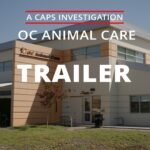Forwarded from Stop the Suffering:
Dog and Cat Breeder Regulation Bill S.F. 462 (Senator Barb Goodwin) H.F. 702 (Representative John Lesch)
The 2012 Minnesota legislative session began on January 24, and a very important bill needs your help. S.F. 462/H.F. 702 (Dog and Cat Breeder Regulation Bill) was introduced in 2011. It is still alive and has a chance to be heard during the 2012 Minnesota legislative session. Minnesota has no state laws, rules, licensing or regulations to address the care of cats and dogs in commercial breeding facilities. That is why this bill is so important. S.F. 462/H.F. 702 will provide basic licensing and regulation for this industry. A large Coalition of humane societies, rescue groups, animal control, veterinarians, and individuals have been working hard for several years to pass legislation to regulate this industry – plus numerous other supporters, including other humane societies, rescue groups, veterinarians, law enforcement, students, legislators, businesses and community members representing the interests of Minnesota who understand the need for breeder regulation have been working with the Coalition to help pass these bills.
We need YOUR help in raising awareness and educating legislators. Your voice can make a difference in the lives of dogs and cats in Minnesota. See below for bill status, talking points and how you can help.
STATUS AND RECAP OF S.F. 462/H.F. 702
Below is information about the Dog and Cat Breeder Regulation Bill (S.F. 462/H.F. 702).
Bill Status S.F. 462/H.F. 702 was introduced in the 2011 Minnesota legislative session. As Minnesota operates on a two-year legislative cycle (2011-2012), S.F. 462/H.F. 702 can be heard in 2012 – same language and same bill numbers. As soon as the bills are granted a hearing in a committee, we will email you and let you know the names and phone numbers of the committee members for you to contact; and we will send you a short message to convey. It will be important to call them within a day or two of receiving the email to let them know of your support. Be sure to mention the bill numbers and authors’ names because there are multiple breeder bills.
Bill Recap
A recap of what was accomplished in 2011:
Many meetings were held with legislators educating them on inhumane dog and cat breeding in Minnesota and explaining why S.F. 462/H.F. 702 is needed.
Meetings were also held with veterinarians, the Board of Animal Health, the Minnesota Veterinary Medical Association, large and small breeders, sportsmen/women, and other stakeholders to gather input and provide feedback and information.
Over 40 Minnesota shelters, rescues, and animal control, and the Animal Law Section of the MN State Bar Association support S.F. 462/H.F. 702.
Over 180 Minnesota veterinarians and vet techs have signed letters supporting these bills (more are signing on each week).
Over 7,700 petitions were signed by Minnesotans in 2011 and over 10,000 in 2010 which were all delivered to the constituents’ Senators and Representatives. As petitions arrive in 2012, those will be delivered to legislators as well.
OPPOSITION:
Opposition is strong from agri-business and their associations, some sportsmen/women groups, the National Rifle Association, breeder registries, and some breeders (Reputable breeders already comply with existing Minnesota anti-cruelty laws and understand the need for regulation; they expect that of all breeders).
COALITION:
Coalition members include A Rotta Love Plus, Animal Folks MN, Animal Humane Society, Minnesota Animal Control Association, Minnesota Humane Society, Minnesota Voters for Animal Protection, Minnkota Persian Rescue, Pet Haven Inc. of Minnesota, Prairie’s Edge Humane Society, Retrieve A Golden of Minnesota, Second Chance Animal Rescue, Tri-County Humane Society, and individuals.
TALKING POINTS FOR S.F. 462/H.F. 702
The Problem There is no State oversight and there are no State laws, inspections or regulations covering dog and cat breeding facilities in Minnesota; as a result, dogs and cats are harmed by inhumane breeding practices. Minnesota is also among the top producers of puppies in the United States with some of the largest breeding kennels in the nation – housing 300, 600 or over 1,000 dogs and puppies. Kittens, too, are mass-produced in Minnesota.
The conditions can be horrific:
Many dogs and cats living out their lives in small, overcrowded wire cages and bred repeatedly.
Cages are often stacked, allowing feces and urine to fall onto the animals below.
Animals may be malnourished from inadequate food and water.
Animals receive little or no veterinary care, are stressed from constant confinement and neglect, have fleas, worms, etc.
Many have deformed paws, are severely matted, or are burned from sitting and standing in urine and feces.
And, they are rarely, if at all, provided human socialization.
While many breeders in Minnesota act responsibly, there are increasing reports of those who keep dogs and cats in deplorable conditions and who are willing to make a profit at the expense of the animals’ health and wellbeing. The puppies and kittens are then sold to the public and many are sick, diseased, and have genetic problems. In Addition USDA only licenses breeders who sell wholesale Only breeders who breed and deal puppies and kittens wholesale (e.g., pet shops, etc.) are licensed and inspected by the United States Department of Agriculture (USDA); and USDA inspection reports show multiple ongoing violations and enforcement is lacking.
The vast majority of breeders in Minnesota do not sell to pet stores, but sell directly to the public, such as through websites, parking lots or newspaper ads. None of these activities are regulated. Current “system” is not working Animal anti-cruelty laws exist in Minnesota . But these laws kick in after the cruelty occurs – if someone files a complaint and if action is taken.
Regulation is preventative – allowing authorities to legally inspect breeding facilities so cruelty can be prevented before it occurs. Relying solely on citizen complaints, cruelty investigations and prosecution is time-consuming and costly for local law enforcement, animal control, nonprofit animal shelters and rescue organizations, and the courts. Regulation is a more efficient use of resources.
Sales tax not being paid
Many commercial dog and cat breeders are not paying the required State sales tax on the puppies and kittens sold, resulting in millions of dollars of lost revenue to the State. Other states are already regulated Because our neighboring states (Wisconsin, Iowa and Nebraska) all have breeder regulation laws on the books, Minnesota will soon become a “safe haven” for inhumane breeders to move.
The Solution:
The goal of breeder regulation is healthy and safe dogs and cats within commercial breeding facilities. S.F. 462 and H.F. 702 address the problem of inhumane breeding by giving the State of Minnesota the authority to:
License – Require commercial dog and cat breeders in Minnesota to be licensed;
Inspect and Enforce – Give legal authority to the Board of Animal Health to inspect commercial dog and cat breeding facilities and enforce existing State laws to ensure animal care standards are met; and
Penalties – Impose civil, administrative and criminal penalties for those who violate the law.
S.F. 462 and H.F. 702 are responsible bills because they address the core problem, work hand-in-hand with existing Minnesota anti-cruelty laws, and have strong support.
ACTION TO TAKE FOR S.F. 462/H.F. 702
Please contact your own State Senator and Representative now. Ask them to support S.F. 462 (authored by Senator Goodwin) and H.F. 702 (authored by Representative Lesch) and educate them on what goes on in Minnesota dog and cat breeding facilities. Getting to know your legislators is important; relationships are key to winning trust and votes. If you don’t know who your State Senator and Representative are (or your district), you can find that information at: http://www.gis.leg.mn/OpenLayers/districts/
To learn more about dog and cat breeding in Minnesota, sign a petition and more, please visit www.animalfolksmn.org
Get Others Involved:
Please ask your family and friends to join this effort by emailing us and requesting to be added to the database – stopthesuffering@yahoo.com
Thank you for caring and getting involved. Stop the Suffering * If you would like to watch other Minnesota bills relating to animals, see below.
OTHER BILLS TO WATCH:
SUPPORT: S.F. 705/H.F. 1098 (authored by Senator John Marty/Rep. Joe Mullery) repeals a very old law that requires publicly funded shelters/impounds to surrender unclaimed stray animals to research facilities that request them. Minnesota is one of only two states remaining that requires this practice. Since MN research facilities have not taken pets from impound facilities in at least 10 years, it is time to repeal this law. As of this date, S.F. 705 passed out of the Senate Agriculture Committee in 2011 and was referred to the Senate Finance Committee. H.F. 1098 was heard in the House Agriculture Committee and was laid over for possible inclusion in the Ag. Omnibus bill but was not included in 2011.
OPPOSE: S.F. 1118/H.F. 1369 (authored by Senator Doug Magnus/Rep. Rod Hamilton) is a bill that, among other things, would make it a crime to videotape and show footage taken inside puppy/kitten mills and factory farms. It would criminalize whistle blowing on animal cruelty issues and food safety problems inside these facilities, even for the news media. As you can imagine, there is much opposition from animal welfare organizations, environmental groups, and anyone caring about free speech. This bill has received a lot of negative publicity throughout the United States. To date, neither has received a hearing.
OPPOSE: H.F. 1635 (authored by Rep. Rod Hamilton/no Senate companion as of this date) is a bill that amends the current “Pet Lemon Law” by including nonprofit humane societies and rescue groups under this law and defining them as “pet dealers.” The Pet Lemon Law, passed in 1992, is a consumer protection law that was created to regulate for-profit businesses (defined as pet shops, breeders and dealers of dogs and cats). By including humane societies and rescue groups under this law, these organizations would have to follow the same requirements as for-profit businesses, such as conducting two veterinarian exams of each animal (one exam 2 days after receipt of the animal and one exam 4 days prior to the sale), thus incurring additional expenses. Unlike for-profit businesses, nonprofits take in strays, owner surrendered, abused, neglected and seized animals who have varying medical and health conditions. Some animals are old, injured or neglected and require additional vet care (including dogs and cats rescued from breeding facilities). Most nonprofits are not even able to recoup the vet expenses put into the animals they receive. Again, the intent of the Pet Lemon law is to regulate businesses that make a profit from the breeding, dealing and selling of dogs and cats, not to regulate nonprofits that clean up societies’ problems.
OPPOSE: H.F. 516 (Rep. Bruce Vogel)/no Senate companion as of this date). The bill removes the mandate to enforce the dangerous dog and stray dog laws and removes the reporting section of the dangerous exotic animal law. All of these changes were a huge concern for public safety reasons and also for the welfare of the animals. The bill was heard in the House Agriculture Committee where there was testimony in opposition by animal control representatives and a letter in opposition from The Wildcat Sanctuary. The bill was held over and not voted on. BUT, Rep. Steve Drazkowski took the dangerous dog and stray dog sections and put them into one of his own bills that had already been introduced and was granted a hearing in the House Government Operations (H.F. 7). At the hearing of H.F. 7, he amended the above troubling language into his bill. There was no one there to testify in opposition but there were some questions asked by committee members. The bill passed that committee and is being watched carefully so that testifiers in opposition will be able to attend the next committee hearing.




